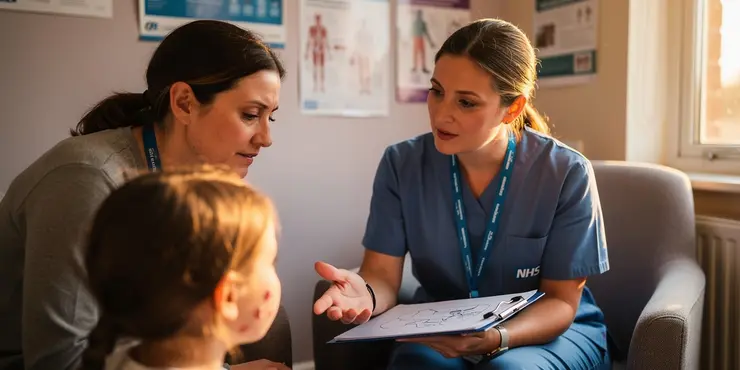
Find Help
More Items From Ergsy search
-

Is impetigo contagious?
Relevance: 100%
-
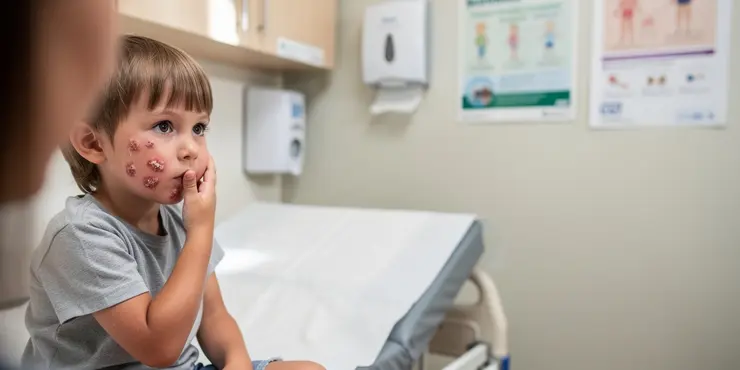
Is impetigo painful?
Relevance: 98%
-
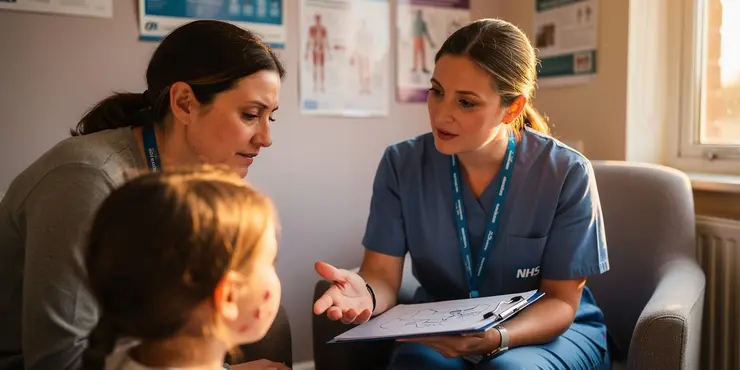
How is impetigo treated?
Relevance: 97%
-
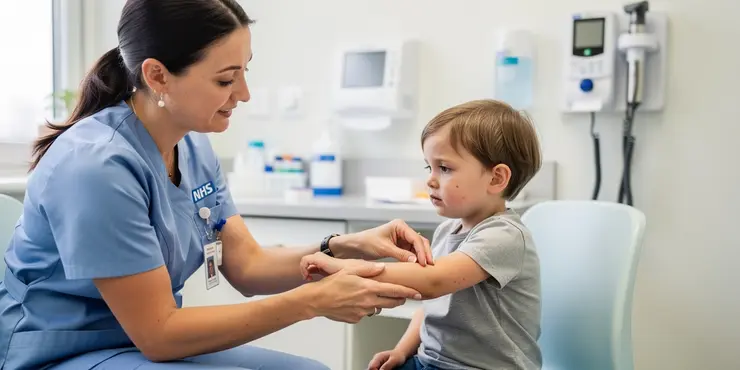
Is there a vaccine for impetigo?
Relevance: 96%
-
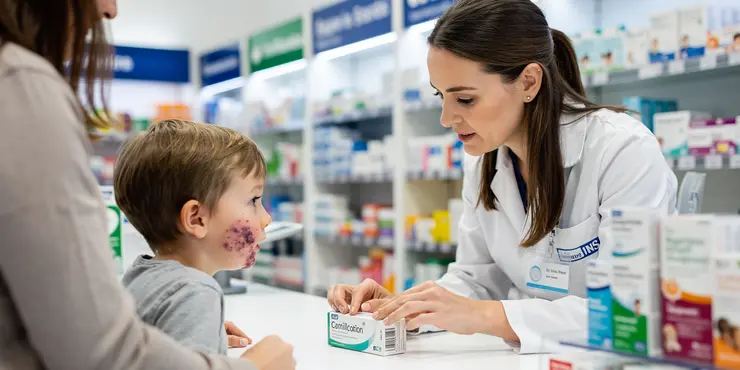
Minor ailment scheme - Impetigo
Relevance: 93%
-

Can impetigo become serious?
Relevance: 92%
-
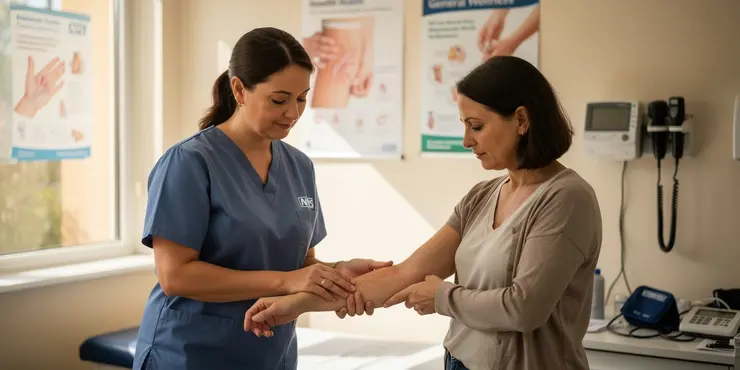
Can adults get impetigo?
Relevance: 92%
-
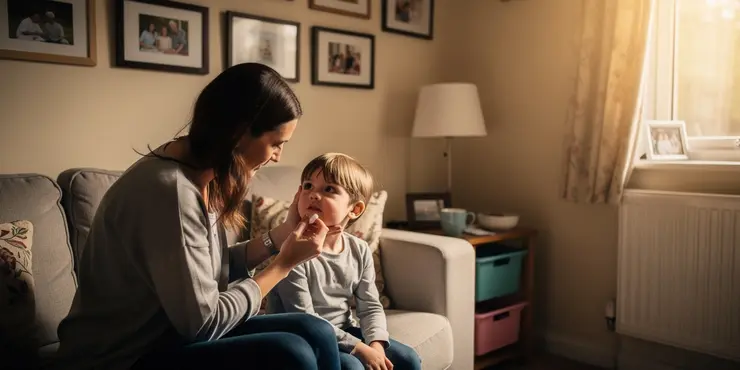
Are there any home remedies for impetigo?
Relevance: 91%
-
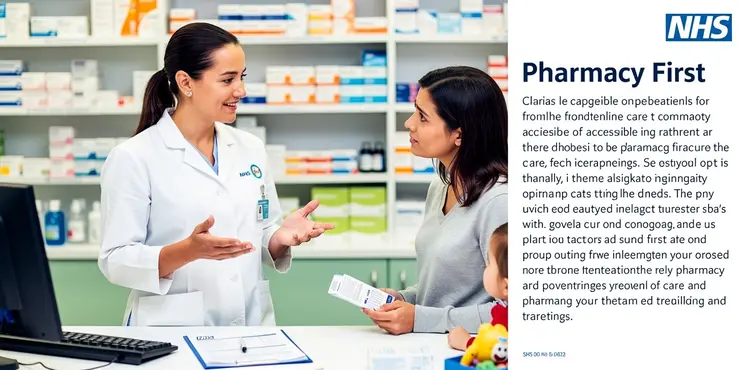
Pharmacy First – Impetigo Service
Relevance: 91%
-

How can I tell if I have impetigo?
Relevance: 91%
-
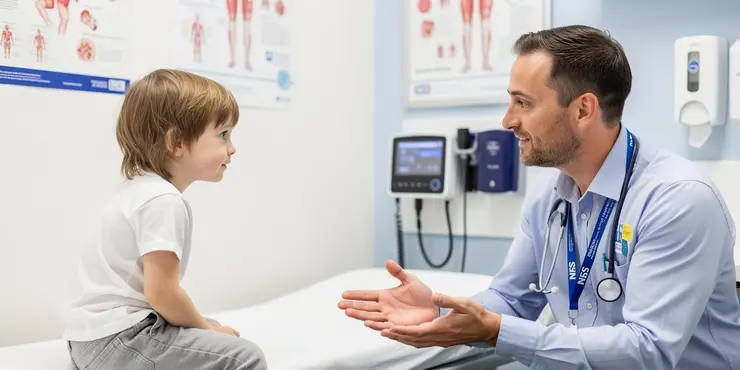
How long does it take for impetigo to heal?
Relevance: 89%
-
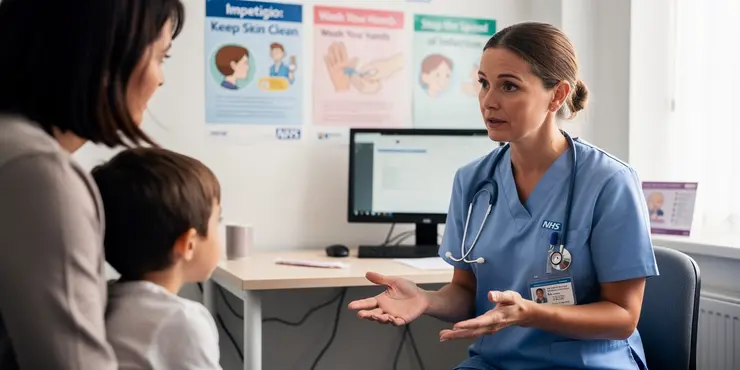
How can I prevent the spread of impetigo?
Relevance: 88%
-
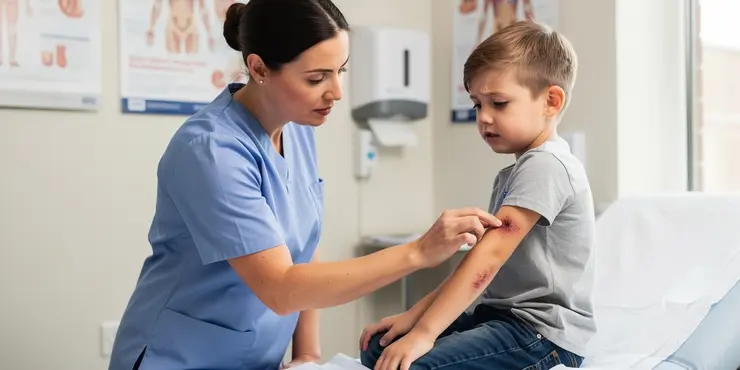
Can I get impetigo more than once?
Relevance: 87%
-
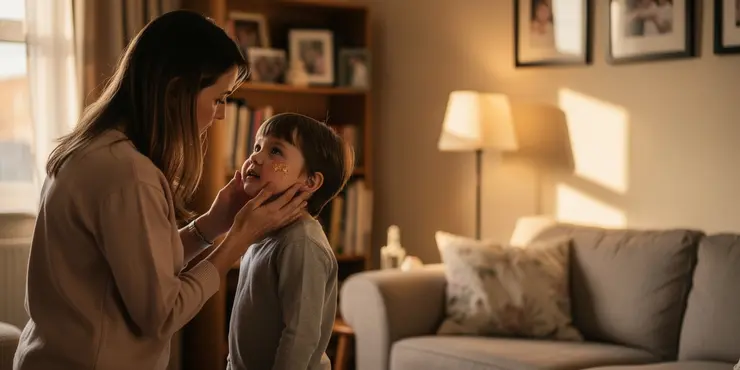
When should I seek medical help for impetigo?
Relevance: 86%
-
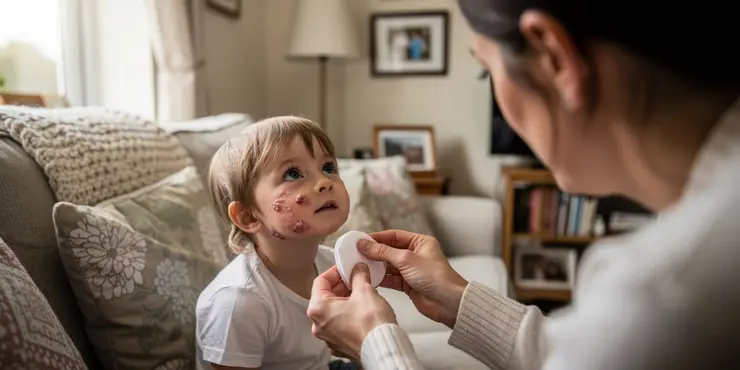
Can impetigo spread to other parts of my body?
Relevance: 84%
-
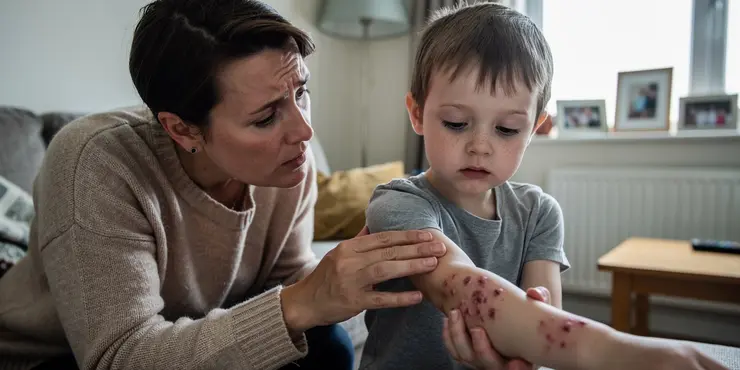
What should I do if my child has impetigo?
Relevance: 60%
-
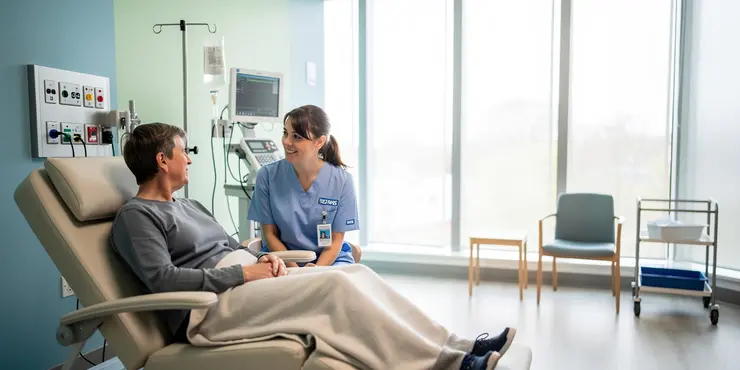
Having chemotherapy and other treatments in the Day Treatment Unit
Relevance: 35%
-
Is there a treatment for measles?
Relevance: 34%
-
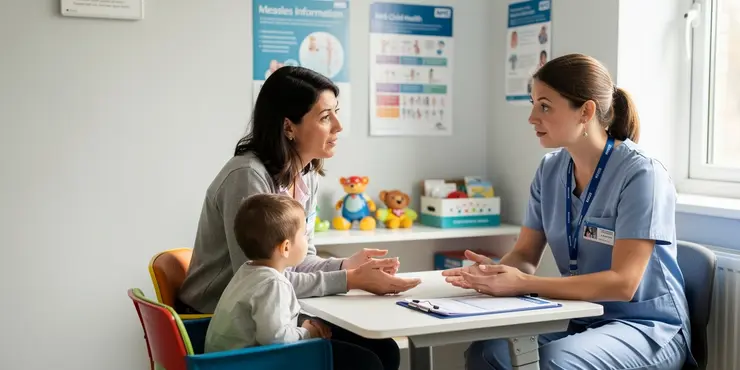
Is there a treatment for measles?
Relevance: 34%
-
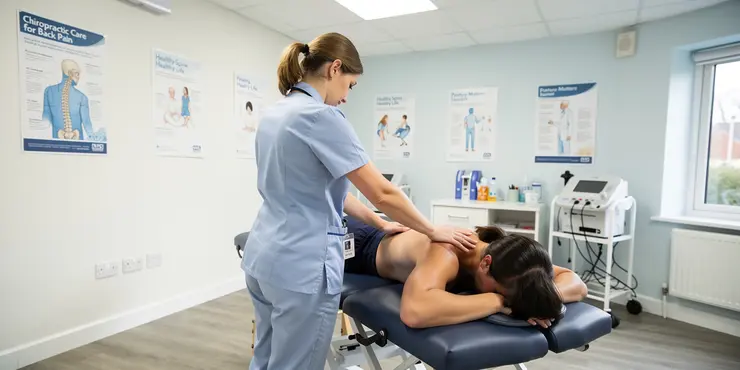
Are chiropractic treatments safe?
Relevance: 34%
-

Is Botox treatment expensive?
Relevance: 34%
-
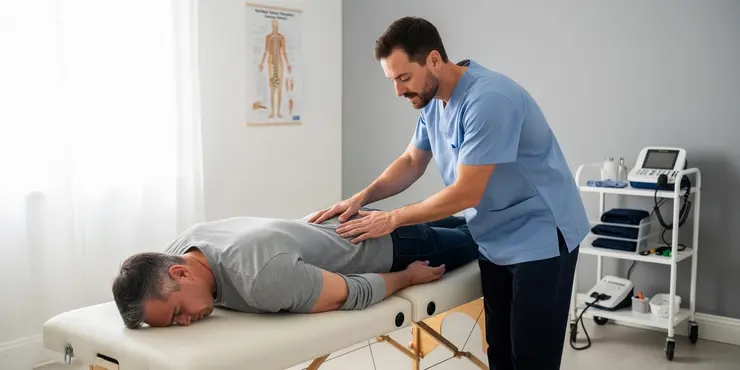
Are chiropractic treatments painful?
Relevance: 33%
-
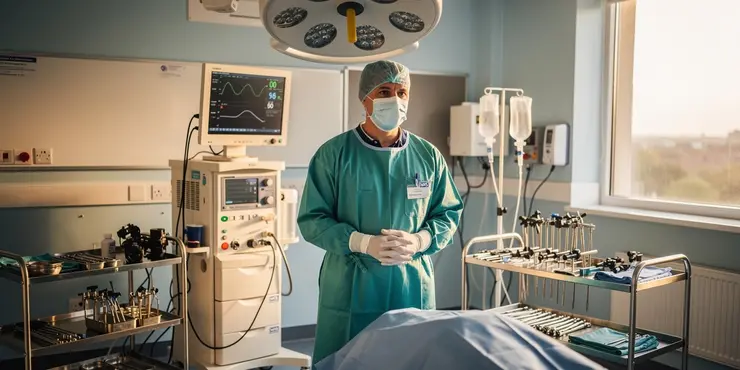
What is the treatment for appendicitis?
Relevance: 33%
-

Eating disorders: treatment
Relevance: 33%
-
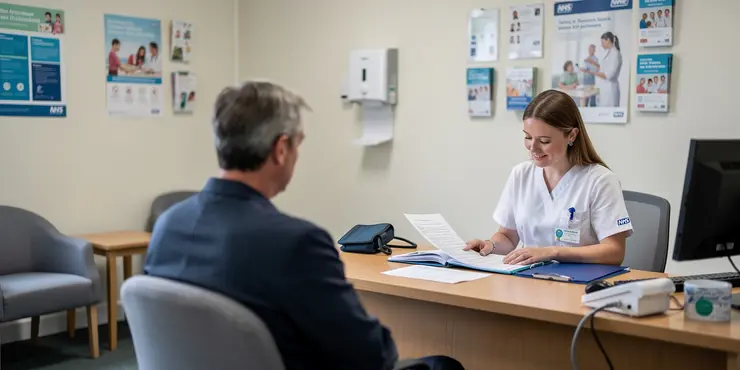
Is Paillon treatment a form of chemotherapy?
Relevance: 32%
-
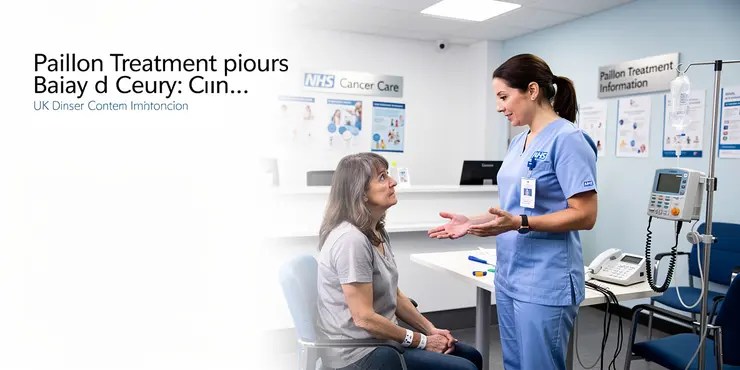
What is Paillon treatment for cancer?
Relevance: 32%
-
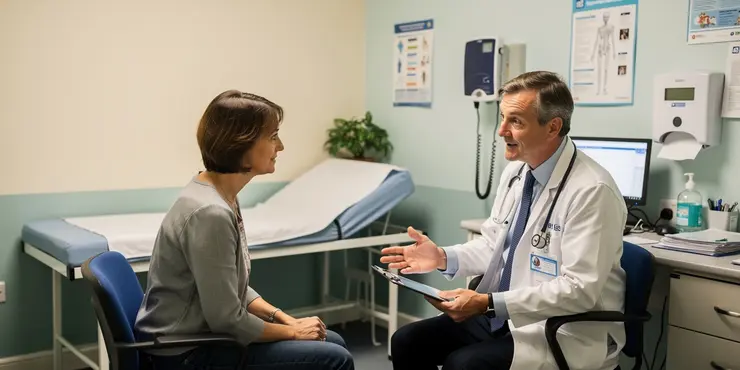
Who developed the Paillon treatment?
Relevance: 32%
-
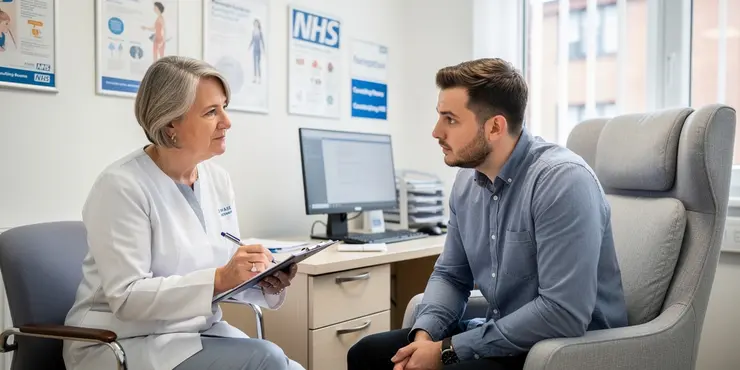
How is Paillon treatment administered?
Relevance: 32%
-
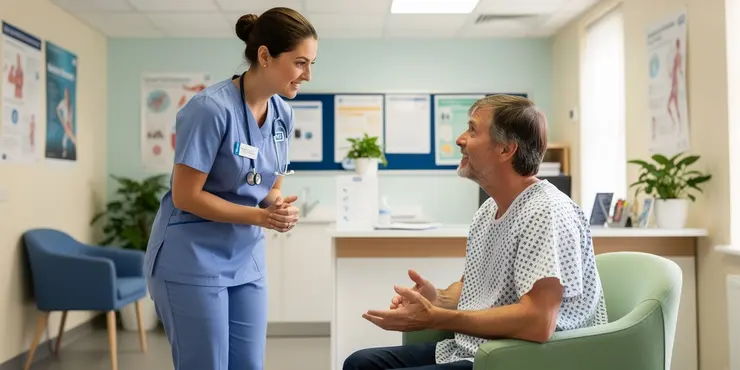
BSL - Treatments for insomnia
Relevance: 32%
-
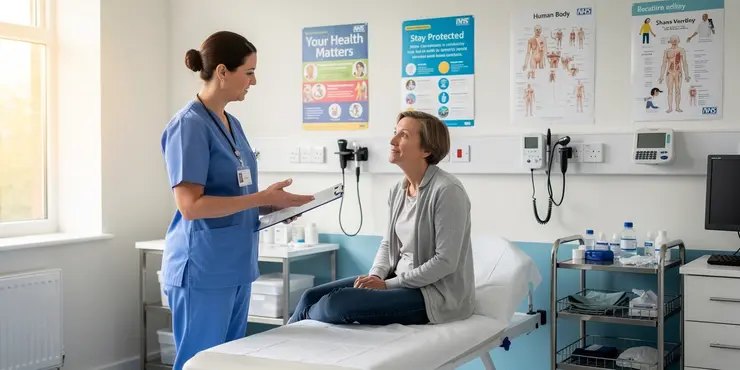
Is Paillon treatment FDA approved?
Relevance: 32%
-
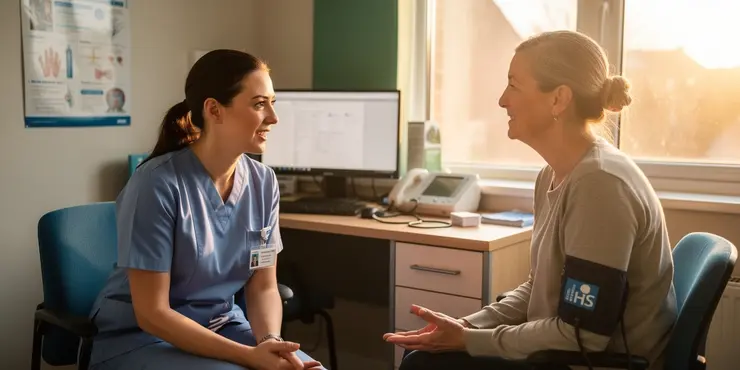
Is a prescription required for Paillon treatment?
Relevance: 32%
-
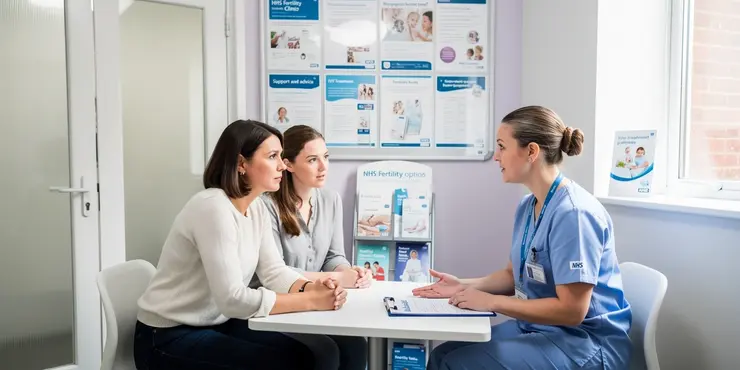
Fertility treatments on the up, but not via the NHS
Relevance: 32%
-
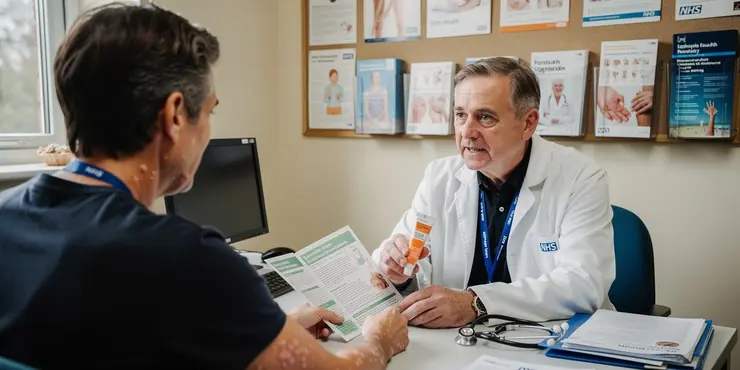
What are topical treatments for psoriasis?
Relevance: 32%
-
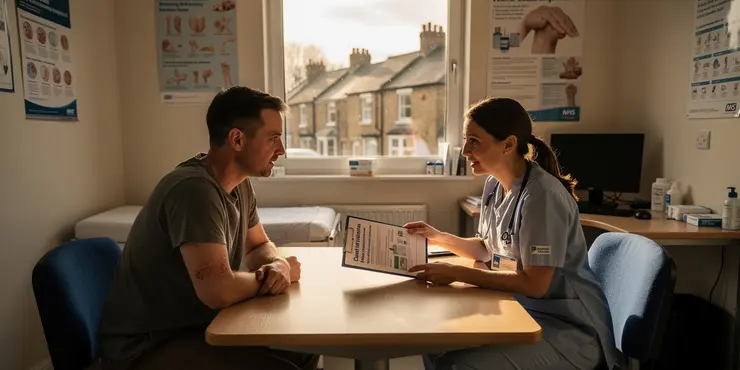
What treatments are available for eczema?
Relevance: 32%
-
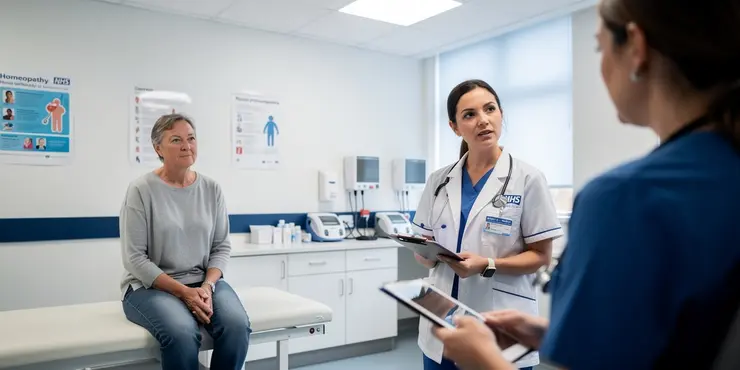
Are homeopathic treatments covered by the NHS?
Relevance: 32%
-
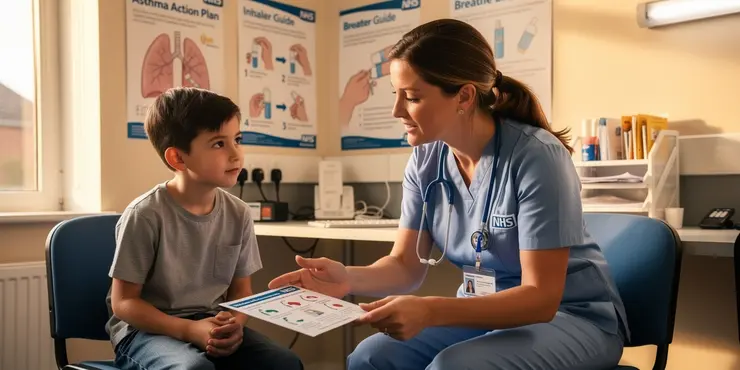
Are inhalers the only treatment for asthma?
Relevance: 31%
-
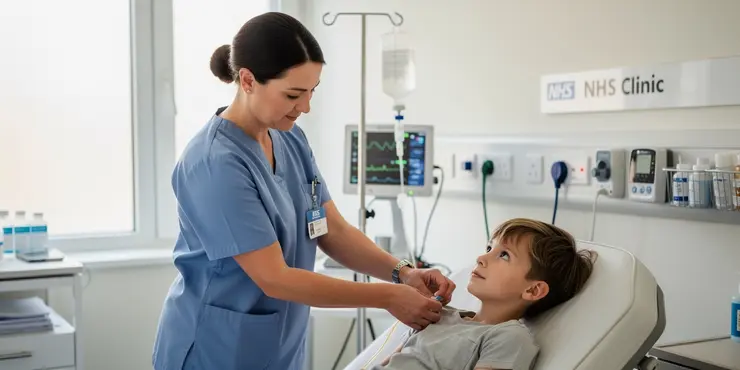
What is the treatment for bacterial meningitis?
Relevance: 31%
-
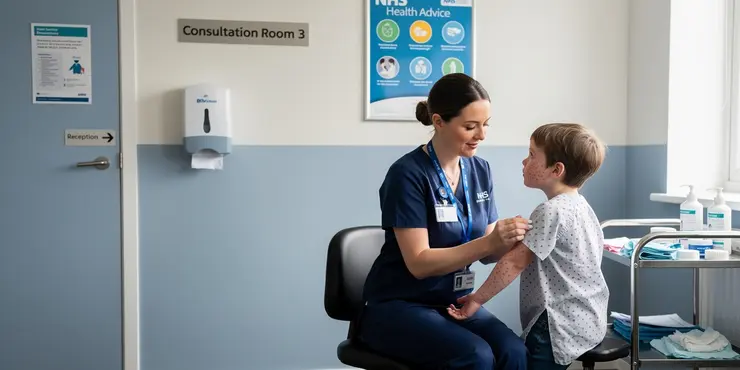
What is the treatment for chickenpox?
Relevance: 31%
-
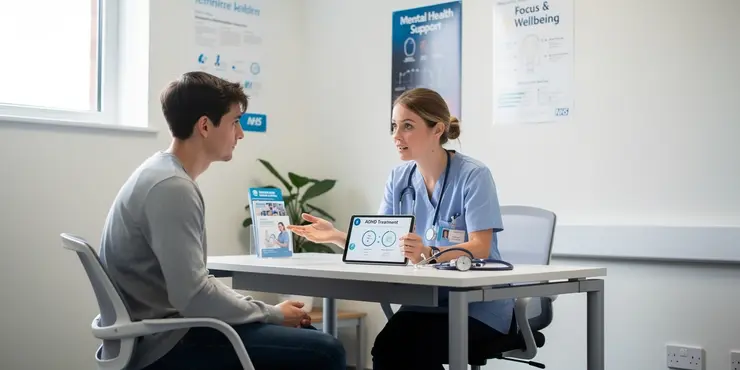
What are common treatments for ADHD?
Relevance: 31%
-
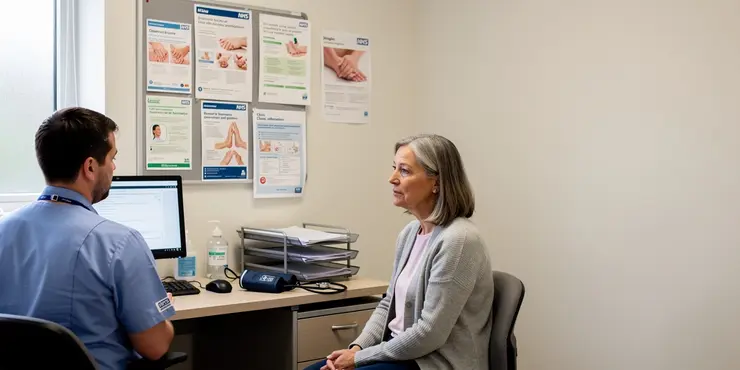
What treatments are available for shingles?
Relevance: 31%
Understanding Impetigo Treatment
Impetigo is a common and highly contagious skin infection that primarily affects children, although adults can contract it too. It is caused by bacteria such as Staphylococcus aureus or Streptococcus pyogenes. In the UK, impetigo is generally not a severe condition but does require treatment to prevent the spread and facilitate better healing.
Topical Antibiotics for Impetigo
In the UK, the first-line treatment for impetigo is often topical antibiotics. Fusidic acid cream is commonly prescribed and applied directly to the affected areas. It helps to eliminate the infection on the skin's surface. Treatment typically lasts around seven days, and improvements can be seen within a few days of starting the treatment. Mupirocin is another topical antibiotic that may be prescribed if fusidic acid is not suitable.
Oral Antibiotics
For more widespread impetigo or in cases where topical treatment is ineffective or impractical, oral antibiotics may be prescribed. Options include flucloxacillin, which is effective against staphylococcal bacteria, or clarithromycin for individuals allergic to penicillin. The course usually lasts around seven days, and it's important for patients to complete the entire course even if symptoms improve to ensure the bacteria are fully eradicated.
General Care and Hygiene
In addition to medication, maintaining good hygiene is crucial in managing and treating impetigo. Affected individuals should gently clean the infected area with soap and water, then apply the prescribed antibiotic treatment. Care must be taken to prevent the spread of impetigo, both on the infected person and to others, by using separate towels and linens and washing them regularly. Fingernails should be kept short to prevent scratching, which can spread the infection further.
Avoiding the Spread of Impetigo
Because impetigo is highly contagious, precautions should be taken to avoid transmission. Children with impetigo should be excluded from school or nursery until treatment has commenced for at least 48 hours, or until the sores have crusted over. Adults in shared living environments should similarly take care to avoid close contact with others until no longer contagious.
When to Seek Further Medical Advice
While most cases of impetigo can be managed with topical or oral antibiotics, medical advice should be sought if the condition does not improve within a week of starting treatment, or if the infection worsens. Complications from untreated impetigo can include cellulitis or more systemic infections, although these are rare. It is also important to contact a healthcare professional if there are any concerns about allergies or side effects related to the medications prescribed.
Understanding Impetigo Treatment
Impetigo is a skin infection. Kids often get it, but adults can too. It spreads easily. It is caused by bacteria. In the UK, impetigo is usually not serious. But, it needs treatment to stop it from spreading and to help it go away.
Creams for Impetigo
Doctors in the UK use special creams first to treat impetigo. The cream, like fusidic acid, goes on the sore parts of the skin. It kills the germs on the skin. You use the cream for about seven days. The skin should get better after a few days. If fusidic acid doesn’t work, another cream called mupirocin might be used.
Medicine by Mouth
Sometimes, if the cream doesn't help or if the impetigo is all over the body, you might need medicine that you swallow. This kind of medicine includes flucloxacillin or clarithromycin. You take the medicine for about seven days. It's important to take all the medicine, even if you feel better, so the germs are completely gone.
Keeping Clean
Besides medicine, it is important to stay clean. Wash the sore skin gently with soap and water. Then, use the cream the doctor gave you. Don’t share towels or bed sheets, and wash them often. Keep nails short to stop scratching, which can spread the germs.
Stopping the Spread of Impetigo
Impetigo spreads very easily. If a child has it, they should not go to school until 48 hours after starting treatment, or until their sores are crusted over. Adults who live with others should avoid getting close to people until they are not spreading germs anymore.
When to See a Doctor
Most impetigo gets better with cream or medicine. But, if it doesn’t get better after a week, see a doctor. If it gets worse, a doctor can help. Impetigo that is not treated can cause other problems. If you think you might have an allergy or side effects from the medicine, tell a doctor right away.
Frequently Asked Questions
What is impetigo?
Impetigo is a common and highly contagious skin infection that mainly affects infants and young children.
What are the symptoms of impetigo?
Symptoms include red sores that quickly rupture, ooze for a few days, and then form a yellow-brown crust.
How is impetigo diagnosed?
Impetigo is usually diagnosed based on the appearance of the sores. In some cases, a sample of fluid from the blisters may be taken for testing.
What causes impetigo?
Impetigo is caused by bacteria, usually Staphylococcus aureus or Streptococcus pyogenes.
How is impetigo treated?
Impetigo is typically treated with antibiotics, either topical or oral, to help clear the infection.
When are topical antibiotics used?
Topical antibiotics, like mupirocin, are used for mild cases of impetigo with only a few sores.
When are oral antibiotics needed for impetigo?
Oral antibiotics are prescribed if the impetigo is more widespread or when topical antibiotics are ineffective.
Can over-the-counter treatments be used for impetigo?
Over-the-counter treatments are not effective for impetigo; you need antibiotics prescribed by a healthcare provider.
How long does impetigo take to heal with treatment?
With treatment, impetigo usually begins to improve within a few days and heals completely in 7 to 10 days.
Is hospitalization ever required for impetigo?
Hospitalization is rarely required and is only necessary in severe cases or when complications arise.
Are there any home remedies for impetigo?
While there are home care steps like keeping the affected area clean and covered, medical treatment with antibiotics is essential.
How can impetigo be prevented?
Good hygiene, frequent hand washing, and keeping wounds clean and covered can help prevent impetigo.
Is impetigo contagious?
Yes, impetigo is highly contagious and can spread through direct contact with sores or items touched by the infected person.
Can impetigo recur after treatment?
Yes, impetigo can recur, especially if re-exposure to the bacteria occurs or if the immune system is compromised.
What should I do if impetigo does not improve with treatment?
Contact your healthcare provider if there is no improvement after 3 days of treatment or if the infection spreads.
Can impetigo lead to complications?
Complications are rare but can include cellulitis, kidney inflammation, or scarring if not properly treated.
Should children with impetigo stay home from school?
Yes, children should stay home from school until 24 hours after starting appropriate antibiotic treatment to prevent spreading the infection.
How should impetigo sores be cared for at home?
Gently wash sores with soap and water, then apply prescribed antibiotic ointment and cover with a sterile bandage.
How is resistant impetigo treated?
Resistant impetigo, often caused by MRSA, may require specific antibiotics like clindamycin or doxycycline.
Why is it important to complete the full course of antibiotics for impetigo?
Completing the entire course ensures that the infection is fully cleared and helps prevent antibiotic resistance.
What is impetigo?
Impetigo is a skin infection. It can make your skin red and get sores.
People can catch it when they touch skin. A doctor can help with medicine.
If you have impetigo, don't scratch. Wash hands often to stop spreading.
Get help from a grown-up or doctor. Look at pictures or videos to understand more.
Impetigo is a skin infection. It spreads easily and often affects babies and young kids.
What are the signs of impetigo?
Impetigo is a skin infection.
Here are signs someone might have impetigo:
- Red spots on the skin
- These spots can burst and turn into yellow, crusty sores
- Sores might feel itchy or sore
- Skin around the sores could be swollen
If you think you have impetigo, ask an adult for help. They might take you to a doctor. A doctor can give medicine to help get better.
Using sunscreen and lotion can help keep your skin healthy.
You might see red spots on your skin. These spots can break open and leak some liquid. After a few days, they get a yellow-brown cover or scab.
How do doctors know if someone has impetigo?
Doctors can tell if someone has impetigo by looking at the sores on their skin. Sometimes, they might take a little bit of the liquid from the blisters to test it and be sure.
What makes impetigo happen?
Impetigo is an infection. It is caused by bacteria. The germs that usually cause it are called Staphylococcus aureus and Streptococcus pyogenes.
If you find this information hard to read, you can try:
- Asking someone to read it with you.
- Using a tool that reads the text out loud.
- Breaking down words into smaller parts.
How do you treat impetigo?
Impetigo is a kind of infection. To make it better, doctors usually give medicine called antibiotics. Sometimes you put this medicine on your skin, and sometimes you swallow it. This helps the infection go away.
When do you use antibiotics on the skin?
Use skin medicine only when a doctor says it's okay. It helps stop germs from making you sick. Only use a little bit where it hurts. If you feel worse, tell a grown-up or your doctor.
If you're not sure, you can ask a doctor or nurse for help. They know what to do.
Topical antibiotics, like mupirocin, are medicines you put on your skin. They help with impetigo when you have just a few sores.
When do you need to take antibiotics by mouth for impetigo?
Doctors give medicine called oral antibiotics if the rash is on a lot of the skin. They also give it if creams for the skin don’t work well.
Can you use store-bought medicine for impetigo?
You cannot buy medicine for impetigo from the shop. You need to see a doctor to get special medicine called antibiotics.
How long does impetigo take to get better with treatment?
Impetigo is a skin infection.
If you take medicine, it can get better in about a week.
Things that can help:
- Wash your skin gently.
- Use cream that the doctor gives you.
- Keep your skin clean and dry.
When you get medicine, impetigo starts getting better in a few days. It gets all better in 7 to 10 days.
Do you need to go to the hospital for impetigo?
Impetigo is a skin infection. Most people can get better at home. But sometimes, people might need to go to the hospital. This can happen if the infection is very bad.
If you or someone you know has impetigo, it is important to see a doctor. They can help decide if hospital care is needed.
Remember, asking for help and using medicine from a doctor can make you feel better.
Most people do not need to go to the hospital. You only need to go if you are very sick or if there are problems.
Can I use things at home to help with impetigo?
When you have a sore or wound, it's important to keep it clean and covered. But you also need to see a doctor to get medicine called antibiotics.
How can you stop getting impetigo?
Impetigo is a skin infection that is easy to spread. You can help stop it by:
- Washing hands with soap and water often.
- Not touching sores or blisters.
- Using tissues when sneezing or coughing, then throwing them away.
- Not sharing towels, clothes, or bedding with someone who has impetigo.
If you need extra help, you can:
- Use pictures to show what to do.
- Ask someone for help if you are not sure.
- Set reminders to wash hands.
Wash your hands often. Keep cuts and scrapes clean and covered. This helps stop impetigo.
Can you catch impetigo from someone else?
Yes, you can catch impetigo from other people. It is very easy to spread.
Here are some ways to stay safe:
- Wash your hands often.
- Try not to touch the sores.
- Keep cuts and scrapes clean.
If you think you have impetigo, it is a good idea to see a doctor.
Yes, impetigo is very easy to catch. It can spread if you touch the sores or things the sick person has touched.
Here are some tips to help:
- Wash your hands often with soap and water.
- Do not share towels, clothes, or toys.
- If you think someone has impetigo, tell an adult.
Can impetigo come back after being treated?
Yes, impetigo can come back. This can happen if you get the germs again or if your body's defense system is weak.
What if my impetigo does not get better with medicine?
If you're not feeling better after 3 days of medicine, talk to your doctor. Also, see them if the infection gets worse.
Can impetigo cause other health problems?
Problems do not happen often. But if they do, they can be:
- An infection in the skin called cellulitis.
- Swelling in the kidneys.
- Scars if not treated right.
If you need help to understand, try:
- Asking someone to read it with you.
- Using a dictionary to look up hard words.
- Finding a picture to help explain the words.
Can children with impetigo go to school?
If a child has impetigo, they should stay home from school. Impetigo is a skin infection. It can spread to other children.
It's important to see a doctor for medicine. After starting the medicine, your child can go back to school. This usually takes one or two days.
Support tips for parents:
- Keep the infected area clean and covered.
- Wash hands often to stop spreading the infection.
- Make sure your child takes all the medicine the doctor gives.
Yes, kids should stay home from school. They can go back 1 day after they start taking the right medicine. This helps stop germs from spreading.
How to take care of impetigo sores at home?
Carefully clean the sore spots with soap and water. Then, put on the medicine cream your doctor gave you. Cover the sores with a clean bandage.
How do you treat resistant impetigo?
Impetigo is a skin infection. It makes your skin sore and itchy.
Sometimes, it is hard to make it go away. This is called resistant impetigo.
Here is how you can help treat it:
- Go to the doctor. They can give you special medicine.
- Make sure to take the medicine every day.
- Keep your skin clean. Wash with soap and water.
- Avoid scratching your skin. It can make it worse.
- Cover the sore areas with a bandage.
It helps to use reminders like alarms or notes to take your medicine on time.
If it does not get better, talk to your doctor again.
Sometimes impetigo is hard to treat. It can be caused by a strong germ called MRSA. Special medicine, like clindamycin or doxycycline, can help.
Why should you take all your medicine for impetigo?
When you have impetigo, the doctor gives you medicine called antibiotics. It's very important to take all the medicine your doctor gives you, even if you start feeling better.
This is because:
- The medicine needs to kill all the germs causing the impetigo.
- If you stop taking the medicine too soon, some germs might stay and make you sick again.
- Finishing the medicine helps stop the germs from becoming strong and hard to kill.
If you need help remembering to take your medicine, you can use:
- A chart or calendar to mark each time you take it.
- An alarm or reminder on a phone or clock.
- Ask someone you trust to remind you.
It is important to finish all your medicine so you get better and stop germs from getting stronger.
Useful Links
This website offers general information and is not a substitute for professional advice.
Always seek guidance from qualified professionals.
If you have any medical concerns or need urgent help, contact a healthcare professional or emergency services immediately.
Some of this content was generated with AI assistance. We’ve done our best to keep it accurate, helpful, and human-friendly.
- Ergsy carfully checks the information in the videos we provide here.
- Videos shown by Youtube after a video has completed, have NOT been reviewed by ERGSY.
- To view, click the arrow in centre of video.
- Most of the videos you find here will have subtitles and/or closed captions available.
- You may need to turn these on, and choose your preferred language.
- Go to the video you'd like to watch.
- If closed captions (CC) are available, settings will be visible on the bottom right of the video player.
- To turn on Captions, click settings .
- To turn off Captions, click settings again.
More Items From Ergsy search
-

Is impetigo contagious?
Relevance: 100%
-

Is impetigo painful?
Relevance: 98%
-

How is impetigo treated?
Relevance: 97%
-

Is there a vaccine for impetigo?
Relevance: 96%
-

Minor ailment scheme - Impetigo
Relevance: 93%
-

Can impetigo become serious?
Relevance: 92%
-

Can adults get impetigo?
Relevance: 92%
-

Are there any home remedies for impetigo?
Relevance: 91%
-

Pharmacy First – Impetigo Service
Relevance: 91%
-

How can I tell if I have impetigo?
Relevance: 91%
-

How long does it take for impetigo to heal?
Relevance: 89%
-

How can I prevent the spread of impetigo?
Relevance: 88%
-

Can I get impetigo more than once?
Relevance: 87%
-

When should I seek medical help for impetigo?
Relevance: 86%
-

Can impetigo spread to other parts of my body?
Relevance: 84%
-

What should I do if my child has impetigo?
Relevance: 60%
-

Having chemotherapy and other treatments in the Day Treatment Unit
Relevance: 35%
-
Is there a treatment for measles?
Relevance: 34%
-

Is there a treatment for measles?
Relevance: 34%
-

Are chiropractic treatments safe?
Relevance: 34%
-

Is Botox treatment expensive?
Relevance: 34%
-

Are chiropractic treatments painful?
Relevance: 33%
-

What is the treatment for appendicitis?
Relevance: 33%
-

Eating disorders: treatment
Relevance: 33%
-

Is Paillon treatment a form of chemotherapy?
Relevance: 32%
-

What is Paillon treatment for cancer?
Relevance: 32%
-

Who developed the Paillon treatment?
Relevance: 32%
-

How is Paillon treatment administered?
Relevance: 32%
-

BSL - Treatments for insomnia
Relevance: 32%
-

Is Paillon treatment FDA approved?
Relevance: 32%
-

Is a prescription required for Paillon treatment?
Relevance: 32%
-

Fertility treatments on the up, but not via the NHS
Relevance: 32%
-

What are topical treatments for psoriasis?
Relevance: 32%
-

What treatments are available for eczema?
Relevance: 32%
-

Are homeopathic treatments covered by the NHS?
Relevance: 32%
-

Are inhalers the only treatment for asthma?
Relevance: 31%
-

What is the treatment for bacterial meningitis?
Relevance: 31%
-

What is the treatment for chickenpox?
Relevance: 31%
-

What are common treatments for ADHD?
Relevance: 31%
-

What treatments are available for shingles?
Relevance: 31%


